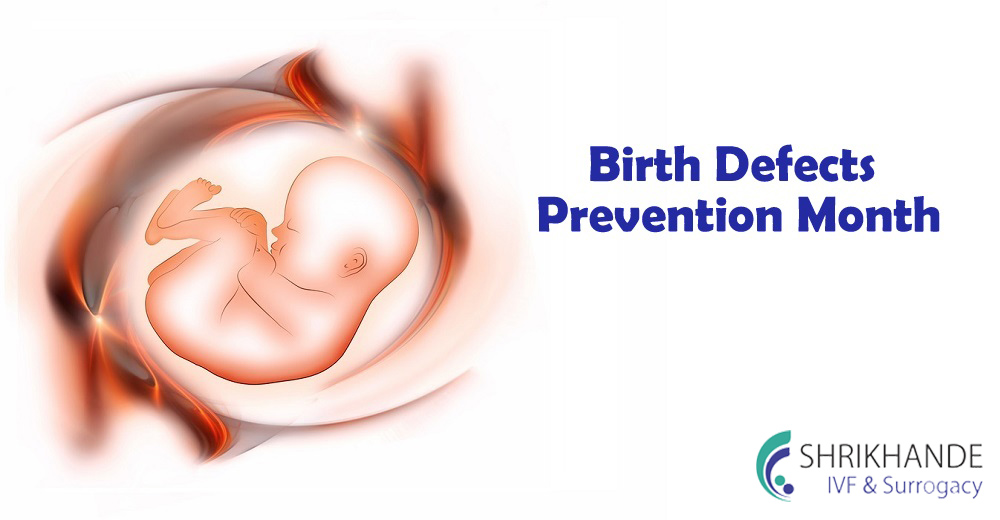Birth Defects Prevention Month – Help Us Spread The Word
January is also celebrated as National Birth Defects Prevention Month. In India about 1 in 7 babies is born with a birth defect. Birth Defects are also known as congenital anomalies and they are defined as functional or structural deformities that occur during intrauterine life. Birth Defects can also be identified prenatally, during the birth or sometimes, these defects are only realized after the birth of the child.
As per the National Health Portal, India – “In nearly 50% of cases the exact cause of congenital anomaly could not be identified, although there are some known risk factors which can be linked with the causation of malformation. Congenital anomalies can be caused by single gene defects, chromosomal disorders, multi-factorial inheritance, environmental teratogens (an agent, which can cause a birth defect) and micronutrient deficiencies.”
Steps To Prevent Birth Defects:
Although not all birth defects can be prevented a woman can increase her chances of having a healthy baby by making several changes in her lifestyle. Birth defects normally occur early in the pregnancy. Most pregnancies in India are unplanned. Many women don’t even know they are pregnant till they miss their period. They continue with their daily routine. Some women who have unhealthy lifestyles continue to having unhealthy lifestyle. If you have these habits they have to be stopped immediately.
- Avoid alcohol, drugs and smoking at all costs:
Alcohol, Drugs and Cigarettes cause damage that might not be repairable. If you are looking to get pregnant you should immediately stop all these activities. Alcohol and drugs play havoc with your hormones which make it difficult to conceive. Once pregnant using these substances makes it even harder to have a healthy child. Learn how to you make lifestyle changes for a better pregnancy.
- Pregnant Women need to take a vitamin of 400 mcg folic acid everyday:
Folic Acid are Vitamin B’s that reduce the risk of birth defects. It reduces the risk of defects of the brain and the spine. 400 micrograms of Folic Acid should be consumed every day. You can get more information when you visit your gynaecologist.
- See a pregnancy specialist as soon as you find out about your pregnancy:
Visit a gynaecologist who will be able to guide you. It is extremely important that you visit a specialist so that you can be in a more comfortable position when it comes to your delivery.
- Avoid unpasteurized milk and milk products, Raw meats
Unpasteurized milk and milk products made from unpasteurized milk may contain bacteria or other micro-organisms that may cause problems with the development of your child. Similarly eating raw or uncooked meat could leave you open to diseases from bacteria.
- Don’t use chemicals which might cause harm to the fetus:
Sometimes chemicals in fertilizers and pesticides can cause harm to the fetus. If you do some gardening this might be a good time to take a break from that activity and let someone else handle it for a while.
What’s The Good News?
The good news is that genes that cause birth defects are being discovered every day. With advancements in medical treatment researchers are finding ways to prevent birth defects. The rate of babies being born with birth defects is reducing on a daily basis. There are genetic counselors who can help guide you with more information about your code and the steps you can take to prevent birth defects.
What Should You Do:
It is your responsibility to help spread awareness about birth defects in the country. A lot of these issues can be easily prevented if the women have access to the right information. Shrikhande IVF and Surrogacy center always tries and provides as much helpful information to its patrons as it can. If you have any infertility issues or would like a visit to the gynecologist please feel free to call Shrikhande IVF – the best Infertility Clinic in Nagpur.
Tags: Birth Defects Prevention, Birth Defects Prevention Awareness, Birth defects Prevention Month, How To Prevent Birth Defects





 (+91) 880 557 7600
(+91) 880 557 7600
 Abhyankar Road, Dhantoli, NAGPUR-12
Abhyankar Road, Dhantoli, NAGPUR-12






Leave a Reply